#with one Nigerian
Text
openai outsources some kind of training to africans -> chatgpt uses words like "delve" a lot more often than americans do -> an anti-meteoric rise of the word's usage in papers suggests academics are using it to write a ton -> some people who don't want to read ai-generated text filter out text with the word -> nigerians discriminated against
#you've probably already heard about this#but if not#it's an interesting set of dominoes#i should note that the first and last steps of this are unclear#it may be that no actual nigerian was turned down because of it#but the policy enacted is one which works against nigerians
272 notes
·
View notes
Text
leverage tv/cinematic universe where there are different shows following the different leverage international teams when
#there’s the og. there’s the koreans. there’s the nigerians mentioned in one ep#there’s the longin crew mentioned in the last ep#give me all of them#(give me london crew with eve and an alive villanelle who is making amends and doing crime for good)#dean devlin hire me pls I have so many ideas#leverage#leverage redemption#leverage international#also many of the crews have polyamorous dynamics i don’t make the rules crime is just Like That#mine#although I’m not sure I trust ppl to do a leverage movie on the big screen idk#don’t talk to me about the warrior nun movies that shit has jaded me#(pls talk to me about it I’m stressing and no one in my life has watched the show and knows my pain)#me: explaining that the saved warrior nun franchise is now going to be led by misogynists and have none of the og cast or crew#my roommate working on a puzzle: that’s rough buddy
295 notes
·
View notes
Text
Not to be dramatic but since hiori is blasian in canon I need black x readers asap🗣️ like we are DEF not getting any cultural background on this kid (because they just slid it in there like we weren’t gonna recognize in the first place)not that we have any background on any of these children’s parents but I think he should explain how he feels being mixed in Japan because it’s just really funny having these two in the exact same anime, and they are both black 
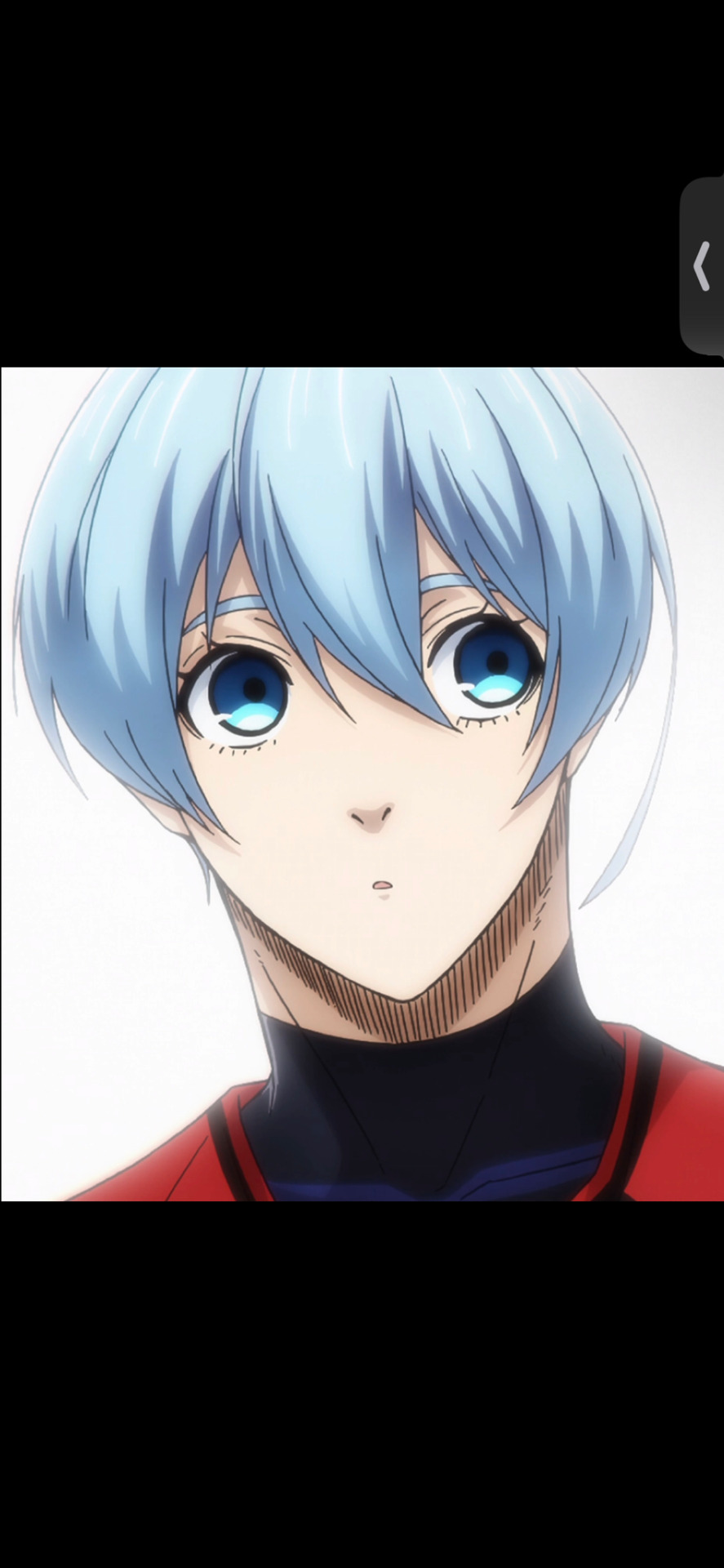

This is ABSOLUTELY hilarious 😭
Edit: so I’ve noticed a pattern of EVERY character looking like their mother and barely sharing any resemblance to their fathers so ig he gets a pass for being pale BUT there’s even more melaninated characters so let’s give him some sun too!!🥺



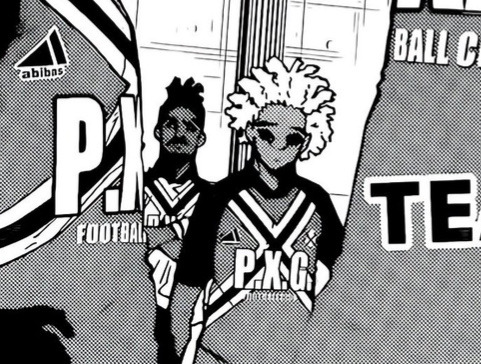
Respectfully; come the fuck on
#blue lock#hiori yo#blue lock hiori#bllk hiori#hiori x reader#blue lock x reader#like I’m most likely gonna do some thing myself#but like the fact that I found out from Twitter#I am once again asking if it is a nod to like being white passing#like is he not supposed to look black because of that#he don’t look like his parents where did his dad come from? Did he immigrate to Japan? Is he Afro American ? Is he Nigerian?#like they’re doing so good on representation so far please.#IT HAS TO BE ON PURPOSE#BC LEO OR WHAYEVER HIS NAME IS IS THERE AND SHIDOU AND TYE OTHER BLACK GUY#I’m literally choosing to believe that it’s on purpose#I am reaching for Atoms I’m not grasping at straws!!#he says he feels like he doesn’t belong so does he mean displaced from two cultures or just one?#what about his extended family is he allowed to talk to them since they’re so suffocating?#I feel like this is a very real thing black kids relate to you can’t just give me him and not tell me shit about him.#if I catch up in the manga and I don’t get any more details I’m going to start chewing lava#Filling in the blanks on his backstory on God#does he just know English and Japanese?#He has a very specific dialect of speaking so is it from knowing a different type of language??#aave mixed in???#French is a very prevalent language in Africa. Does he know a little French?#CREOLE??#like please sad backstory aside who the fuck is he!!#does he get to interact with any of the other black characters??#HIM SHIDOU AND LOKI CAN HE BESTIES LIKE COME ON!!#im in so much pain I’m reading ahead of where I am
87 notes
·
View notes
Text
Okay I’m going to say this and I’m going to say this once.
I do not like how the relationship with Jamie’s father was handled in season 3.
If they wanted to go the route of forgiveness they absolutely could have. If they wanted to go the route of his dad going to rehab they absolutely could have. Those are not inherently wrong or bad. It’s a show about forgiveness and I get that. It’s a comedy and Jamie is not the main character - I get that too.
My issue is this: the show went out of its way on multiple occasions to show just how violent and abusive James is. Just to give a few examples:
Repeated physical abuse
Repeated verbal abuse
Planning, funding, and likely pressuring the sexual abuse of his 14 year old son (a minor and below the age of consent in both The Netherlands and the UK regardless of the age of the girl in the red light district)
The willingness to beat Coach Beard (basically a stranger to him) with a metal pipe in a 3 to 1 fight in a back alley which could have realistically resulted in his death (and calling Beard “son” right before the final blow)
Jamie literally gave up his dream - a job as a professional footballer on a top hometown team - to leave the country on a trashy reality show just to get away from his father. The show traced a large portion of Jamie’s issues back to his relationship with his father. Not all of course - but that was a big theme of his growth and development.
So even if we entertain the notion that this stint in rehab was successful and James is sober - that’s great. That’s a storyline I wouldn’t mind hearing - IF we had the appropriate time to show it. But the thing is, we didn’t. This season was disjointed and rushed in many ways - and I’m not complaining - I still loved it. But if they’re going to tackle a topic this serious, they need to do it right. They need to be clear that alcohol was not the only problem James had and that sobriety does not absolve you of accountability. As important as it is to portray the message that all human beings can change, including addicts, it is equally as important to show the serious work that addicts in recovery put in to address the hurt that they caused through their addiction. It is not easy work to battle addiction and to mend relationships - sometimes part of recovery is accepting that you can’t mend things with everyone you’ve hurt and that is the right of the victim to decide how they feel.
We were shown none of this. What we got instead was:
A speech from Jamie’s mom about how he is still amazing despite his dad while still somehow crediting Jamie’s talent to his dad’s abuse
Ted telling Jamie to forgive his dad as he’s mid-panic about his safety and his dad’s location
Ted making a point to say the forgiveness was for Jamie’s sake, not for James - which was ALMOST good until they ruined it
Denbo and Bug suddenly supportive despite being just as violent as James in 2x09
James suddenly in rehab for 0.2 seconds
Jamie reaching out to his dad via text despite having no idea his dad is in rehab - something that is realistically compromising his physical and emotional safety
A quick clip of Jamie bonding with his father before the season/series ends for good
The reason I connected with Jamie so intensely from season 1 was the shared experience of abuse from my father. I want to be clear that I know I’m projecting - that’s what fandom is - and I in no way expected the show to end exactly as I wanted. However, this is what I would have liked to see as 1) an abuse survivor 2) a licensed therapist and 3) a person:
The message that you can heal without forgiving those who hurt you OR that you can forgive them and still not allow them back into your life (ESPECIALLY if it compromises your safety)
The message that sometimes people don’t change for the better and you can grieve that relationship while still fostering healthier ones elsewhere.
An emphasis on support systems and chosen family when someone doesn’t have the reality of a parent or partner getting better (we saw this with Bex seeking out Rebecca and Rupert’s assistant)
Instead of Man City suddenly cheering for Jamie, which felt insanely unrealistic, having the cheers of Richmond fans drown out the boos and verbal assaults of the Man City crowd - further emphasizing that despite the pain he has attached to Man City and his father, he has a home with Richmond.
So to wrap up this very long rant, I feel very disheartened by this part of the season. I still love Ted Lasso and always will - there were so many parts of this season I absolutely adored and wouldn’t trade for anything - but I feel that they dropped the ball on this one. Most people don’t get to repair relationships with abusive parents. Is it possible? Of course. Is it important to depict that it can happen? Absolutely. It’s a show about forgiveness. But they didn’t need to do it like this for Jamie’s storyline. They could have kept the speech about forgiving James for Jamie’s sake and deleted all of the rehab/texting afterwards. I still wouldn’t have been thrilled but it would have made more sense to me in context of the show. And it would have meant a lot more to me as someone who’s father is unlikely to ever stop being a risk to my safety.
This just felt bad. Jamie Tartt had one of the best arcs I’ve ever seen in media and he deserved better than that.
#ted lasso spoilers#jamie tartt#James Tartt#anyway#you don’t have to agree with me on this#this is just my take#clearly I’m personally triggered a bit by it lol#I’m not looking to argue or anything just needed to vent#a lot of things felt off this season and I know there’s a lot of behind the scenes reasons for that#some we’re aware of and some we aren’t#but this is one of the ones that hurt#I have a few others too but since this is a Jamie blog I’m just posting about the Jamie ones#don’t even get me started on Sam being told to forgive the people who committed a hate crime at his restaurant#and no further acknowledgement of that trauma and safety issue#and no explanation of how he got onto the Nigerian team with Edwin Akufo actively sabotaging him#okay I promise I’m actually done now#long post
185 notes
·
View notes
Note
Judas is such a hot name bro Jesus fuck
aww isn't that adorable <3 I'm in your head now, in your BRAIN. it's OVER for you.
"jesus fuck" <- this is EXACTLY what Judas Iscariot did according to my sisters jesus x judas wip fanfic
#nnstuff#ask#at least people actually know how to say this name fashdfhsadf#the one i go by irl is like. well i like the way it sounds but most people dont#know what it is#which is funny because it's an English word!!! its just kind of obscure#i have to tell ppl how to pronounce it more than i did my original nigerian name fsdfdsf
76 notes
·
View notes
Text
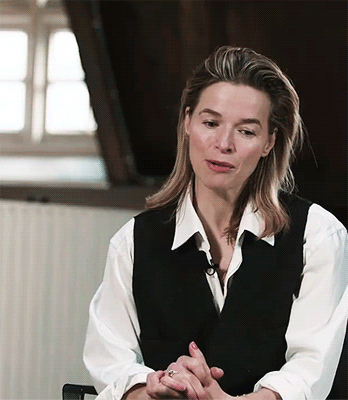

(x)
#sister makes gifs once in a blue moon#thekla reuten#this is a completely pointless gifset sorry but when emy sent me screencaps of this video and#i spent days having dreams about tár after i said there were some tár vibes in this outfit well. the universe was telling me something#anyway she's introducing a documentary that seems pretty interesting about a nigerian theatre director if i got it right#who goes through a lot of trouble to set up an artistic performance in one of the poorest parts of lagos. it's called mrs f#(this is what one year of dutch duolingo has given me)#today is the last day for those in eligible places in the world to watch the films in the festival btw!#gifs and other visuals
21 notes
·
View notes
Text

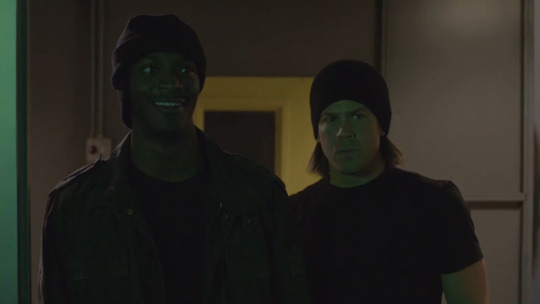



the nigerian job; seeing the server room for the first time.
sharing for hardison's delight and... you know I respect eliot, but this eye sweep can be described charitably as "I have no clue what to do with any of this" and uncharitably as "shit, I don't think anything in here needs punching."
#face journey of increasing delight vs face journey of increasing confusion. I love them.#leverage#the nigerian job#eliot#hardison#orig#obligatory no-one asked for this but it made me happy anyway#one day I'll start fixing lighting crimes or giffing things that would do better as gifs but that is not today#leverage rewatch
12 notes
·
View notes
Text

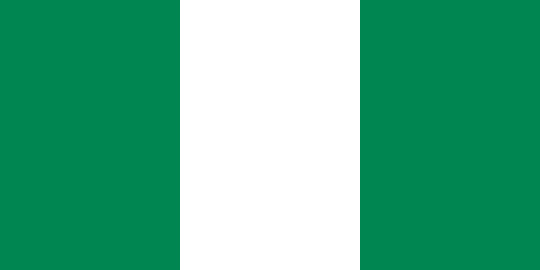
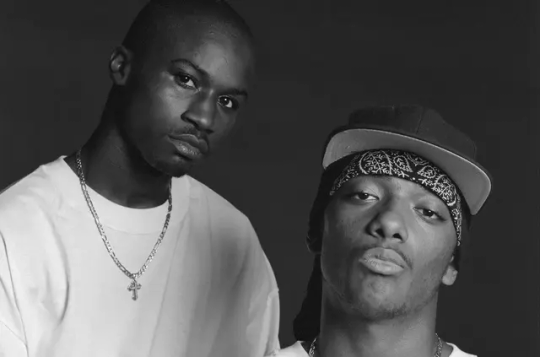
Kejuan Muchita (born May 20th, 1974), better known as Havoc, is an MC, record producer and one half of the hip-hop duo Mobb Deep with Prodigy. He is of Igbo descent. Havoc produces most of the tracks on every Mobb Deep album, and has produced songs for
MCs such as Method Man, Eminem, Nas, Foxy Brown,
Onyx, O.G.C., The Notorious B.I.G., Jadakiss, Styles P,
Game, Diddy, LL Cool J, La The Darkman, Rohff, Big
Noyd, Termanology, Jimmy Mserembo, Capone-N-
Noreaga, and his own partner Prodigy on his solo
work. In the spring of 2005, Mobb Deep was signed
to fellow Queens rapper 50 Cent's record label G-Unit

#african#afrakan#kemetic dreams#africans#brown skin#afrakans#brownskin#african culture#igbo#igbo culture#ndi igbo#hip hop#hip hop music#nyc#naija#nigerian#half way crook#shook ones
12 notes
·
View notes
Text
evie has social media but shes like. an influencer. she runs a brand account on like . magicam kingstagram etc whatever we’re calling it. every post is a carefully planned ad made to boost engagement and get eyes on her work. she’s already in the pocket of half the young royals of the country but she does not care, she wants more money and she can get it through online branding #girlbossing
jay has social media but rarely posts. its only there so that when evie posts pictures of the core 4 modelling her stuff she can tag him. his pfp is a beautiful photo of him shot and edited by evie and every post is a blurry, half obscured picture of like, a cool rock he found or a bird perched on a tree with a completely unrelated caption thats like “water is wet”. he has thousands of followers due to sheer proximity to evie. he likes to incite internet arguments on purpose just so he can watch people argue
carlos has social media but he’s like, deeply pretentious about it. he refuses to make an account on any “popular” social media sites and instead spends all his time on insular communities dedicated to increasingly niche topics on half-dead and user-run blogging platforms. he learns html for the express purpose of making his blog dedicated to a thirty year old video game that nobody’s ever heard of appealing looking. if anyone has even slightly differing opinions on said video game than him he will engage in long, vicious arguments with them in order to prove his superiority. give him 5 years and he’s gonna end up in one of those “fandom retrospective” youtube videos about niche drama. he’s doxxed someone before.
mal doesn’t know what an email address is
#i am exaggerating for the punchline mal DOES know what an email address is#but the only one she has is the one given to all of them by the school#and somehow shes accidentally signed up for a bunch of spam emails#so she cant find anything of importance in her inbox because its all buried underneath nigerian prince scams and shit#and the only reason she doesnt fall for it#is because she sometimes hands her phone to carlos and is like 'is this a scam'#and he is always invariably like 'yes. make a new email address.'#and she never does
69 notes
·
View notes
Text
unspeakable violents
#my pets#goats#sheep#gambit#hallow#dust prince#starshank#there in the background#and a little cameo by august#nigerian dwarf#kathadin sheep#one day i'll pick up all the shreds of tarp that got blown around in the windstorm lmao
61 notes
·
View notes
Photo
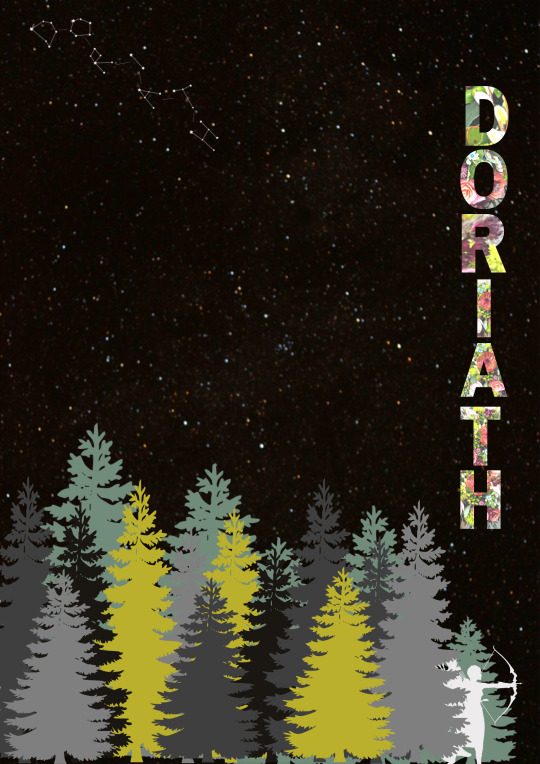
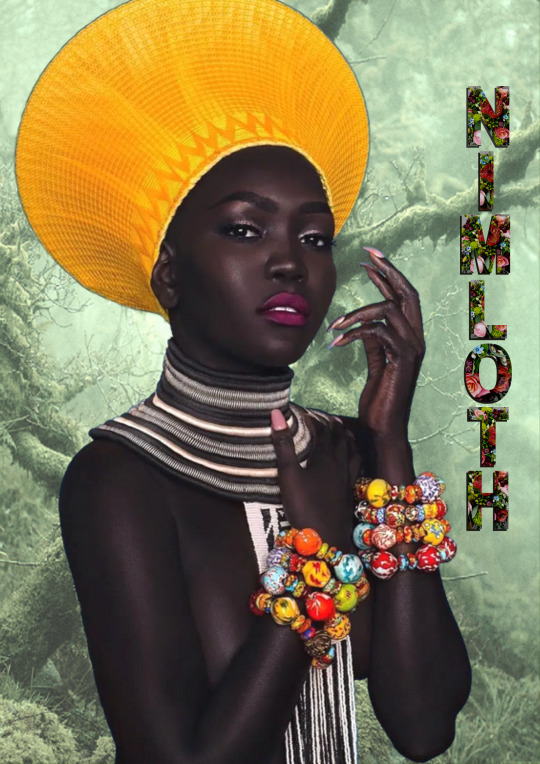
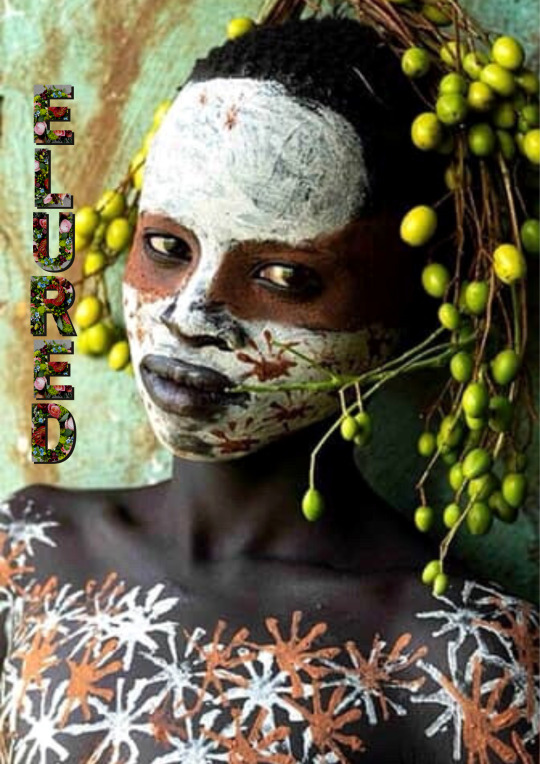
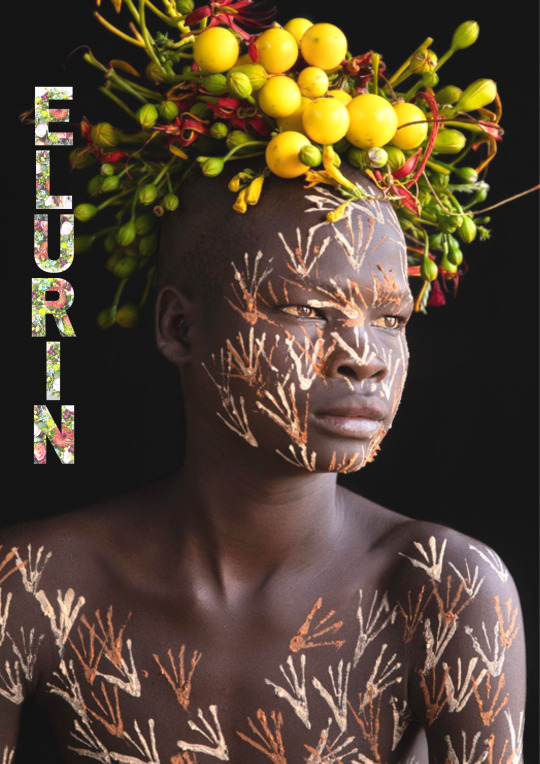


A late entry for @halfelvenweek
(part 7 of toi’s indigenous tolkien series)
#nimloth#elured#elurin#elwing#halfelvenweek#silmarillion#tolkien women of colour#black tolkien#east african tolkien#(the children are suri)#west african tolkien#(nimloth model is nigerian)#moodboards and edits#toi's creations#toi's indigenous tolkien series#(dior is not in this one because he was in my first edit for the week)#userindomiel#tuserosie#userlyndeth
108 notes
·
View notes
Text
i think. i’ve interacted with so many older homophobic nigerians that if i don’t make friends with queer nigerians my age i may become xenophobic to my own people
#like they fucked me up so bad that i’m scared to talk to nigerians now like what#that’s crazy these are my people!! why am i more accepting to other black ppl and not the ones i share a culture and a country with!!!#like i’m nigerian i love being nigerian but ive been surrounded by nigerian boomers in diaspora#like i don’t know ANY nigerian my age!! that’s bad!!#well actually john is nigerian but he pissed me off so bad i don’t even wanna know him#john is the guy i went on a date with that pissed me off btw#also he was born here and i’m mourning the cultural connection so i wouldn’t even get that from him
5 notes
·
View notes
Text
'A woman who falls through the cracks is falling with her children'
Away from threat of Islamist violence or floods, health risks for pregnant women in Nigeria's refugee camps remain high
By Adie Vanessa Offiong, CNN
Photographs by Taibat Ajiboye for CNN
Editor’s note: This story is part of As Equals, CNN's ongoing series on gender inequality. For information about how the series is funded and more, check out our FAQs.
Abuja, Nigeria (CNN)Aisha Aliyu is eight-months pregnant and sprawled out on a mat in front of her house with four of her children spread around her feet. Two-year-old Hauwa and five-year-old Abba are both crying and tugging at their mother's coffee-colored hijab. She, in response, rolls her eyes and clicks her tongue at them. She looks tired.
The child Aliyu is carrying is her tenth. The last four were delivered in the Durumi Camp, a place in Nigeria's capital city, Abuja, that she and an estimated more than 3,000 other internally displaced people call home.
In 2013, Aliyu fled her home in the village of Wala in Nigeria's northeastern Borno State to its capital, Maiduguri. She said her village was attacked and much of it burned down by armed Islamist group, Boko Haram. Two years later, the militant group attacked Maiduguri, forcing Aliyu to again migrate, this time travelling over 856km south to Abuja with her husband and five children.
The now 39-year-old saw having many children as a way of replacing her relatives killed by the insurgents, but reveals she was done after her last pregnancy in 2021 and began using contraceptives. However, she became pregnant again this year.
Having already borne children in Durumi camp (one of 264 communities for internally dispaced people (IDPs) known to exist across Nigeria as of September 2021), Aliyu was fearful, knowing of the limited resources she would have access to. The farmer's wife had been unable to afford the food and medication she needed to stay healthy, and antenatal services were limited.

Aisha with five of her children
The space initially set up as a birthing suite at the camp was rudimentary and barely hygienic, explains Liyatu Ayuba, appointed the camp 's Women's Leader by the site's Chairman when she arrived in 2014. She has since handled issues regarding health, food or children on behalf the IDPs.
"It was a tent that we swept, and I would put a mat or wrapper on the floor for the women to lie down on to give birth," says Ayuba, who for much of the camp's history has been its only birth attendant. Many of the displaced women refer to her as Mama.
Ayuba says the tent was a shanty built with corrugated roofing sheets and a sandy floor. If gloves were available, the birth attendant used them and if not, she explains that she covered her hands with polythene bags and cut umbilical cords with a razor blade.
"I gave birth to three of [my children] with Mama's help on a mat under the shelter," Aliyu tells CNN, referring to the birthing tent. "Mama cut the umbilical cord and bathed the baby."
In 2019, a non-governmental organization set up the camp's health post where Aliyu's ninth child, Hauwa, was delivered in 2021. The post is a small clinic located inside a repurposed 20ft shipping container, where wooden boards partition the space to create a delivery suite which looks more like a storage space and just about holds a bed, a baby cot, a drip stand, a broken chair, a trolley and empty containers that should contain water. The other half is the consultation room with a table, two chairs, a bed, and a cupboard where medicines and devices are kept.
Though basic, the clinic at least provides a consultation space that women previously had to make do without and Ayuba is proud to say the camp has not recorded any deaths among mothers or babies under her watch.
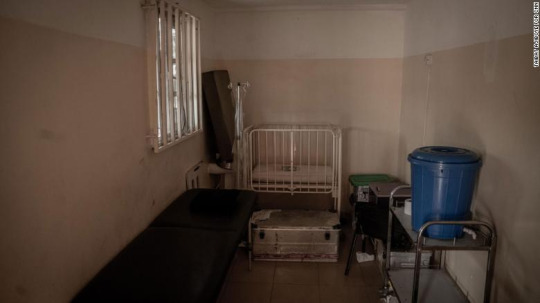
The makeshift delivery room partitioned in the shipping container used as the camp's health post
'No 'special arrangement' for those who are pregnant in Nigeria's camps
Aliyu is one of many internally displaced women bearing children in Nigeria's camps, with some grounds not even housing a health post or shelter for birth, instead needing women to go into labour in their own shelters or that of their birth attendant.
A 2021 PhD thesis by Fatima Mahmood Jibirilla at Walden University, states that women living in IDP camps in Nigeria "have a higher risk of maternal death than women living in their homes." The author cited a range of factors increasing the risk of maternal and neonatal deaths in these settings, including inadequate prenatal care services and limited family planning programs.
"There are no special arrangements for pregnant women in IDP and refugee camps [in Nigeria]. There are poor antenatal services that are inadequate to detect and address likely pregnancy-related complications and other signs of poor pregnancy outcomes," the author writes. While there have been no maternal or infant deaths at Durumi on her watch, according to Ayuba, multiple doctors volunteering there and across camps in Abuja corroborated the concerns highlighted in the study to CNN.
In a country that has long had among the highest maternal mortality rates in the world and has the third highest number of internally displaced people (IDPs) in Africa as of the end of 2022, according to the Internal Displacement Monitoring Centre (IDMC), the lack of adequate maternal healthcare provision in these camps is a significant concern, one of the doctors told CNN.
The 2022 IDMC figures also show that 4.5m Nigerians were classed as "internally displaced people" as a result of both conflict and natural disasters, with flooding outstripping protracted violence as the main source of displacement.
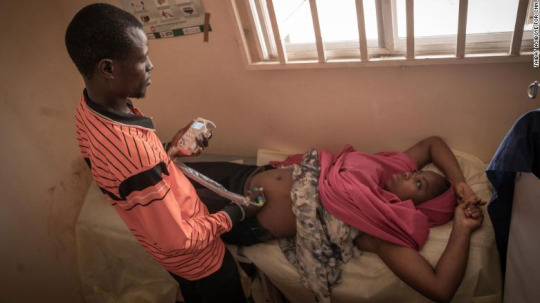
The camp nurse, Isa Umar examines a pregnant woman during antenatal session
While there is no national breakdown of IDPs by sex or age, a 2023 report by the Camp Coordination and Camp Management (CCCM) Sector says there are 1,575,741 women and children in the Nigerian states of Borno, Adamawa, and Yobe alone, making up 74% of the 2,124,053 IDPs in those states.
Nigeria's total IDP population relies largely on the graces of charitable organizations for its health care, Ayuba and the camp's nurse Isa Umar told CNN.
'If it happens, I am dead.' The prohibitive costs of care
Wednesdays are antenatal day in Durumi. When CNN visits, camp nurse Isa Umar, who himself was forced to leave his home due to the insurgency, is in the consultation room using a handheld ultrasound scanner to monitor a baby's growth and a fetoscope to monitor the heartbeat among the expectant mothers coming in.
Umar measures each pregnant woman's stomach followed by her weight. After they've been seen, women compare notes while sitting on the clinic's veranda, discussing how any of the medicines Umar has prescribed will be paid for.
The set up is far from adequate. Umar tells CNN: "We don't even have folic acid or anti-malarial medicine to give them. I have to write these for them to go and buy." Malaria is endemic in Nigeria and infections pose various risks during pregnancy, such as premature labour and miscarriage, and folic acid is recommended for those who are pregnant or planning to become pregnant, to reduce the risk of certain birth defects.
But for most of the 64 women recorded in the camp's birth register this year, these costs are prohibitive. Folic acid, for example, costs ₦3,000 ($3.74) for 100 tablets and Aliyu tells CNN she could not possibly have afforded that cost for the duration of her pregnancy. She says she's only been able to take this vital supplement when NGOs have donated them free of charge. Back home in Wala, her N100 ($0.11) hospital card had entitled her to free folic acid as well as other resources while pregnant.
Getting clean water at the camp is also a challenge, Aliyu shares, explaining that it's a time-consuming, strenuous task requiring her to make several trips daily and is one she can no longer do in the final weeks of her pregnancy. Instead, she now pays for it to be delivered. At its cheapest, enough water to make the family's breakfast of pap (porridge made from ground corn) and other domestic chores for a month costs ₦24,000 ($28.43). Costs can rise by 25% on days when there is no electricity and a generator is needed to work the pumps, or when water sellers must go farther to fetch it.
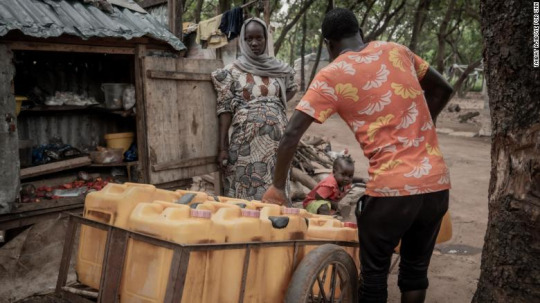
With Aisha almost full term, she is no longer able to go to fetch water and now has to pay up to N500 daily for it to be delivered to her home
There are also the costs of giving birth in Abuja that Aliyu didn't have back home.
To immunize her babies at the camp, the mother of nine has to take them to the nearest government hospital where nurses have certain expectations that fall to the mother, she tells CNN. These include making sure the baby is wearing diapers and bringing various items including cotton wool and baby lotion, which would cost money Aliyu says she doesn't have.
"In Borno, it was not compulsory to use [diapers] when going to the hospital. We just used our wrappers (a piece of fabric women tied around their waist). But here, the nurses insist that (the babies) must wear diapers and (we must) have an extra one in our bag," Aliyu says. Multiple mothers shared similar concerns with CNN.
Dr Charles Nzelu, Head of Special Duties at Nigeria's Federal Ministry of Health tells CNN he believes health workers are simply acting in the overall interests of the baby and that a lack of medical skill, experience, and communication is resulting in a lack of understanding about the women living in the IDP camps. "When you come to me as a doctor, I will give you medical advice the way it's supposed to be," he explains. "When you are more experienced, you are flexible (with) the way you relate with patients." He adds that this government, which came into power in May, will work to address issues like these.
"I can't afford treatment. If it happens, I'm dead"Pregnant resident of Durumi Camp in Abuja, Aisha Aliyu
In the meantime, Aliyu says she is struggling to meet all her needs and those of her children. To afford what she can, Aliyu makes and sells wigs and traditional caps worn by men, earning on average ₦10,000 ($12.49) a month.
Money is not her only concern. Aliyu worries about catching malaria and about not being able to produce enough breastmilk because of the poor quality of her diet. Her family survives on staples such as pasta and maize in different forms.
"I can't afford the treatment" for malaria, says Aliyu. "If it happens, I am dead."
Difficulty fulfilling promises
The National Commission for Refugees, Migrants and Internally Displaced Persons (NCFRMI) is responsible for Nigeria's growing number of displaced people. Its commissioner tells CNN that the organization, which was set up in 1989 and has a health budget of N250 million for 2024, has paid for midwives to visit IDP camps to assist in deliveries of babies as frequently as funds allow and has, in some instances, also paid off people's hospital bills. CNN was unable to verify this budget figure provided by the Commission which it said is not yet public.
However, some of the IDPs who have been in Durumi since the informal settlement formed in 2014, say that no midwives sent by the Commission have visited the camp during their time here and that in the past, it has been difficult to get it to fulfil promises they say the Commission made to the camp, such as furnishing the health post with an additional bed, scanning machine, gloves and other health equipment.
CNN asked the NCFRMI about the services it provides to those in Durumi but did not receive a response prior to publication.

The nurse takes the weight of the pregnant women during antenatal
Within the Federal Capital Territory (FCT), where Abuja is located, the Territory's Health and Environmental Services is responsible for all health matters including services provided to people in IDP camps, including reproductive care and sexual health services, such as birth control. Dr. Dolapo Fasawe, Mandate Secretary of the FCT Health and Environmental Services, tells CNN that IDP camps in the area have functional clinics supported by area council staff and partners from outside, explaining that they cannot build permanent structures because the camps are meant to be temporary. She adds her belief that "the issue with maternal care in such places is child spacing, not maternal mortality." Birth spacing helps to improve maternal health outcomes as becoming pregnant too soon after giving birth increases the risk of complications. Doctors CNN spoke to also highlighted this as a concern in the camps, and Nigeria more widely.
But many residents of the camp told CNN they had not heard of the FCT Health Services or seen them at the camp and explain that the provision of birth control is again handled by non-profits working in the camps. When Fasawe was informed of this by CNN, she said it was a wakeup call for her department to act promptly. This "has opened our eyes to the need to focus on them," Fasawe says. "We need to (conduct some) outreach asap."
Nigeria's Federal Ministry of Health oversees health for the country (including provisions provided by the Commission). In response to the concerns, the Ministry of Health's Nzelu tells CNN that maternal and child health is a very high priority for government but explains that the Ministry primarily provides policies and guidelines for states, local governments and government agencies to follow and does not typically intervene directly. He said: "As a government, we are still working to make sure that both the state and all these agencies of government that are charged with the direct implementation, do their best to make sure that those inhabitants of IDP camps are well taken care of."
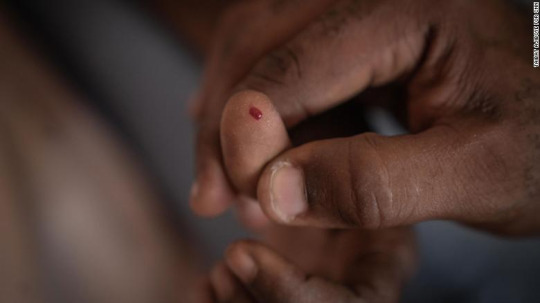
A volunteer doctor brought his own kit to do blood tests at the Durumi camp
'A woman who falls through the cracks is falling with her children'
African NGO, Pro Health International, has been sending volunteer medical professionals to provide free healthcare services for IDPs across Nigeria for over 12 years. They were last in Durumi in June and describe it as one of the most impoverished IDP camps within the Federal Capital Territory (FCT), where Abuja is located.
Pro Health International Founder and Executive Director Dr. Iko Ibanga shared that his team raised the issue of health challenges within IDP camps two years ago with the Minister of Health at the time, Dr. Osagie Ehanire. "We were told it would be looked into, but nothing was done," he says.
Ehanire did not directly respond to CNN about whether Pro Health International raised the issue of health challenges among internally displaced people with him, but the former health minister highlighted the NGO's work as a useful implementer of maternal health services in more recent years, and shared emergency response plans for IDPs that were put in place in the north-east of the country (where Boko Haram is most active) and go back to 2016. He tells CNN: "Women's Health services were prioritized and featured strongly in the programs designed to the needs of internally displaced women." This region does not include Abuja, however, where the Durumi camp is located.
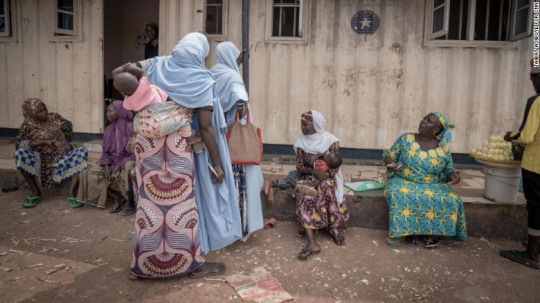
Women at the Durumi IDP camp, sitting on the veranda of the makeshift health post
The 2023 health budget is ₦1.17 trillion ($2.2bn), which is a 42.6% increase since 2022 and the highest percent of the total budget allocated for health. But In Africa's largest economy, this is only 5.7% of the annual budget of ₦20.5 trillion, and is much lower than the 15% of annual budgets all African Union member nations, including Nigeria, pledged in 2001 to spend on "improvement of the health sector".
According to the National Primary Health Care Development Agency, a health post, which is the most basic health care facility, should be able to cater to a population of 500 and have 34 items always available to serve that population. Durumi's health post serves more than 3000 people and has just 10 of these items: a waste bin, scissors, fetoscope, weighing scale, chair, tables, two beds, kidney dishes, and a cupboard, all provided by NGOs according to Ayuba and Umar who say they both manage the facility without a salary.
Nzelu shares that the Ministry of Health is currently conducting a health needs assessment in most of the IDP camps to learn what is and is not lacking to ensure adequate health care services. He tells CNN: "With the budget cycle currently on, it can inform some of the things we are able to get into the budget and hope that the National Assembly gives approval so that we can implement."
Pro-Health International's Ibanga is emphatic about the risks displaced people face during the perinatal period and beyond. "When [a woman] is ill, it affects everything tied to her and her children are the most important things tied to her," he says. "A woman who falls through the cracks is not falling by herself. She is falling with her children."
This story was edited by Eliza Anyangwe and Meera Senthilingam
#Nigeria#Nigerian women#Maternal health#Pregnancy while displaced#As Equals#Durumi Camp#Abuja#Book harassment#internally dispaced people (IDPs)#A refugee camp had only one birth attendant#The birth attendant didn't always have surgical gloves#Folic Acidcosts ₦3000 ($3.74) for 100 tablets#Refugees and access to clean water#Refugees and malnutrition#Refugees and preventable diseases#Refugees and access to birth control#A woman who falls through the cracks is falling with her children
10 notes
·
View notes
Text
Zava saying "why?" when he mispronounces a teammates name v.s Beard correcting himself when he mispronounces the name of a man who's not even in the room
"I'm me, why would I want to be anything else?" and Paul and Baz swapping personalities, only for Paul to say he thinks he likes being himself <3
#ted lasso wednesdays#i fucking LOVE this show!!!#ted lasso season 3#ted lasso#ted lasso spoilers#ted lasso 3x07#this episode had so much just like?? :) <3 :''( :D </3 just. all the feelings!!#i did cry when sam's dad walked in i'm not gonna lie that got me#i'm also still waiting on the zava comeuppance#this man can't get away with refusing to pronounce a teammates name properly and implying that traditional Nigerian food will start#using avocados. he can't get away with that shit!! even if it's just the team realizes that he sucks they've got to realize!#maybe i amend a previous prediction (zava says some supportive shit when Colin comes out and it changes minds) to zava says some supportive#shit about Sam's situation with that politician and the vandalism at Ola's and it changes minds/attitudes#(which obviously either way we want those minds/attitudes changed! Sam and Colin deserve support!! there's just something smelly about zava#being the one to bring people to Sam's side as opposed to people just having empathy and inherently caring about Sam. am i articulate? no#but i hope i'm being clear? i think zava will resurface and be 'woke' but the team will start to see through him. i fuckin hope)
26 notes
·
View notes
Text

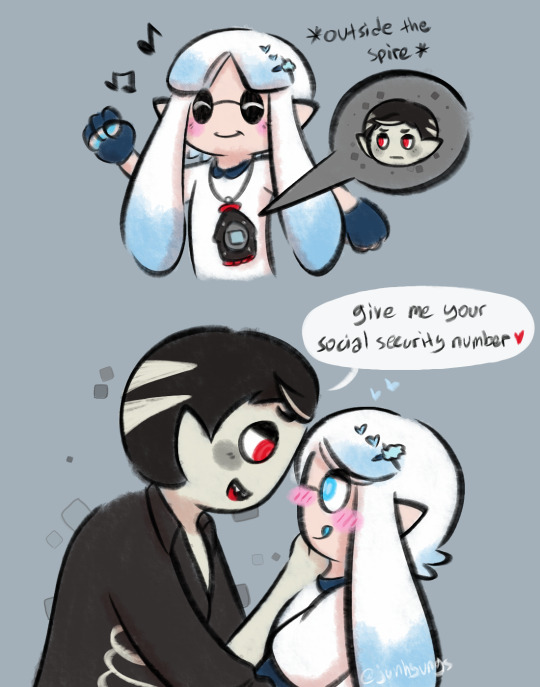

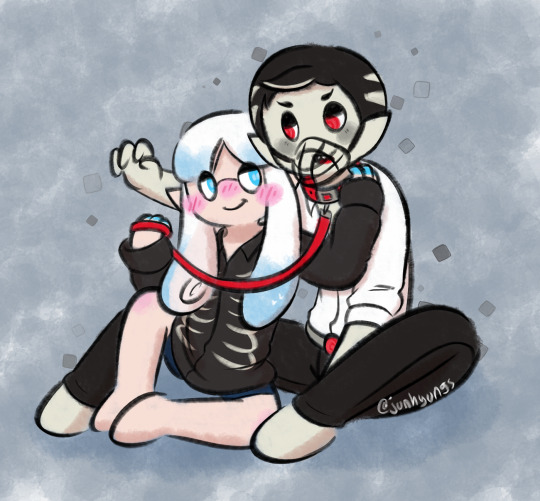
phisher x roll
#art by hyung#splatoon oc#phisher jelleton#roll inkling#unfortunately roll has fallen for one of those nigerian prince people you keep getting emails from
5 notes
·
View notes
Text
"I'm not black, I'm Nigerian." "Xenophobic comment about any other country in Africa." "May this government favour me." "Actively bullying people everyday and thinking it is acceptable" Oga will you shut up your dirty mouth. Shut up.
#monica.speaks ♡#all of these Nigerians need to get of twitter. i genuinely hate people in my country#saw a beautiful Ghanian lady dressed in her cultural attire and one idiot had to say 'they must carry ghana must go on their head' OGA SHUT#UPPPP#nigerians piss me off I cannot believe I live in the same country with some of yall#violently xenophobic for no reason at all#with NOTHING to your name#get off twitter and get a LIFE#tw. vent
4 notes
·
View notes